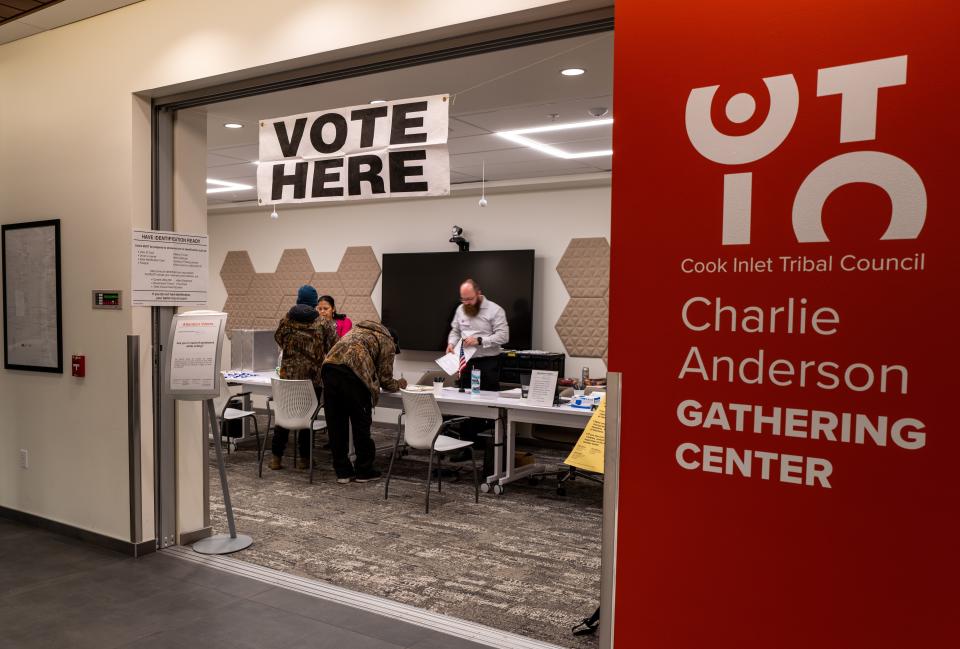Election reform in Alaska meets obstacles as the end of the session nears
As the clock ticks towards the end of Alaska’s legislative session, a bipartisan elections reform bill that the state Senate State Affairs Committee advanced has run into significant obstacles.
Introduced by Republican state Rep. Sarah Vance, the legislation would allow the state to reduce its voter rolls quickly. After a substantial amendment, the bill was expanded to include three Republican initiatives, one Democratic initiative, and four that originated in the Democrat-controlled Committee.
The substantial changes include allowing same-day voter registration, voting questioned ballots, and absentee voting within thirty days of Election Day. Other measures include a ballot curing method enabling voters to correct errors on mailed ballots after they were sent, non-witnessed absentee ballots, and provisions to protect ballots from voters with special needs from rejection due to delivery or poll worker errors.
The Republican National Convention has been coordinating with parties in battleground states to sue state governments and government officials. The biggest of the lawsuits involve efforts to change how absentee ballots are processed. If the Republicans win in the courts, fewer absentee ballots will be counted.

Vance no longer supports the advancement of the bill she authored, citing the significant changes that have been made; she said, “What I’m seeing here in front of me is same-day registration, amidst a whole variety of other measures that I do not support.”
As the legislative session's scheduled end on May 15 approaches, lawmakers from both parties have been pushing to make certain concessions to advance the voting reform legislation. Democratic state Sen. Scott Kawasaki said the changes to the bill had been considered by either a legislative committee or one of the two chambers.
“Why would someone who supposedly registers the same day as an election need to be able to vote an absentee ballot,” asked Republican state Sen. Jesse Bjorkman. “An absentee in-person [ballot] is functionally equivalent to a questioned ballot said David Dunsmore, staff to Democratic state Sen. Bill Wielechowski, explaining that it simplifies the process and allows people to vote for more than just the president in a thirty-day window before Election Day.
If the bill became law, candidates could transfer leftover campaign donations to a legal fund for election-related lawsuits.
In addition, part of Republican state Sen. Shelly Hughes’ bill regulating artificial intelligence political deepfakes was also integrated into the House bill. If the House bill were to become law, campaign-related election ads would require a legal disclaimer. Republican state Rep. Mike Cronk’s bill, also requiring a legal disclaimer for AI representations, passed the House on May 9, with 38 representatives voting for and two voting against it.
Two of the recent additions to the bill address concerns around election cybersecurity. Part of one of the additions addresses procedures for audits intended to reduce cybersecurity risks. That was integrated from Republican state Sen. Mike Shower’s bill introduced in Jan. 2023. It would introduce a mandate that the Division of Elections develop a cybersecurity program to “defend the voter registration records kept by the division against cyberattacks and data breaches and enable the division to detect and recover from cyberattacks.” The change to Vance’s bill would also require “cybersecurity training for election officials.”
“When voting policy makes it easier to vote, the downside is it may make it easier to cheat. This creates the public perception that our sacred right to vote is ripe for fraud and undermines voter confidence. When voting policy makes it harder to cheat, it makes it harder to vote. This makes some cry claims of voter suppression,” said Shower in the sponsor statement of his bill.
This article originally appeared on USA TODAY: Alaska bipartisan elections reform bill may have stalled: Here’s why

